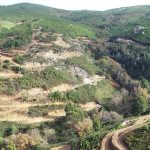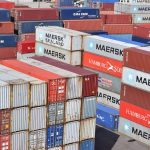Airbus contract damaged TAP interests
A former Portuguese finance minister told a public inquiry on Tuesday that Airbus funds received by former shareholder David Neeleman to capitalise TAP may have been illegal.
João Leão told the parliamentary inquiry on Tuesday that he was unaware of the Airbus funds when he was minister of Finances, but said that from what he later learnt about the contact made by David Neeleman, he believes that it harmed the interests of the airline.
“I’m having great difficulties in understanding this operation. There would have been an audit that allegedly pointed to illegalities. Any process where a contract was made for TAP but the discount went to the shareholder is not legal”, said João Leão. “It’s damaging to TAP’s interests”, he said.
Atlantic Gateway, the consortium held by David Neeleman (JetBlue) and entrepreneur Humberto Pedrosa held a 61% share in TAP from 2015 with a commitment to capitalise the airline with €226.75 million.
Funds equating to a similar amount were transferred to the Brazilian-American entrepreneur’s consortium by Airbus after a contract to buy 12 A350 planes was cancelled and a new leasing contract was drawn up to acquire 53 A320 and A330 Airbuses which Neeleman argued were necessary to compete effectively on the lucrative but competitive US and Brazil routes.
David Neeleman was at the centre of an investigation by the Portuguese Public Ministry in 2020 that he ordered the entire fleet of over 50 new generation Airbus NEO class long and medium haul aircraft at full cost, cancelling a previous and more modest contract for the 12 aircraft that were considered commercially untested at the at the time for a substantially lower price. This cancellation, it is argued, thereby financially damaged the company.
The airline tycoon said that it had been crucial to replace a leasing contract for the 12 Airbus A350s with an order for the 53 NEO-series aircraft to “drag TAP out of near-bankruptcy” when he took over.
He then refuted the suggestion that he bought his shareholding in TAP from these funds got from Airbus by cancelling the previous contract and committing the airline to an even bigger long-leasing contact. “It is also completely absurd to say that TAP shares were bought with Airbus funds or with TAP’s future cash flows,” he wrote, adding that TAP exclusively used the $226 million from Airbus in ancillary benefits to pay salaries and for its cash needs”.
Neeleman argued in an interview with Lusa last year that when the Atlantic Gateway consortium, held by him and Humberto Pedrosa (50%-50%), won the privatisation bid for TAP in 2015 (he was the only serious contender at the time), “the company was completely under-capitalised and at risk of not paying the salaries”, and “at that time, under European rules, the Portuguese State was prevented from injecting any further funds into TAP.”
“For this reason, and contrary to the statements by the minister, Pedro Nunes Santos, it is not true that the Portuguese State had not to that point financed TAP, indeed, all of the company’s debt up until privatisation was guaranteed 100% by the State, and that was the only way (the airline) could get bank loans,” he said.
David Neeleman also argued that during his tenure, “TAP had a solid liquidity of €500 million (above pre-privatisation levels), increased staff numbers by 18%, grew passenger numbers by 54% and business turnover by 39%, flight numbers by 21% and added 13 new destinations — seven of them in the very competitive United States market”.
On the issue of TAP’s debt, Neeleman stated that before he became a shareholder, the company’s debt was 11x EBITDA, but that during his five-year tenure “TAP did not need a single euro from the Portuguese State and its debt no longer needed to be guaranteed by the State, falling to less than half it had been pre-privatisation by 5x EBITDA.
“In my various projects in the airline industry I have always met my obligations, acting in an honest and transparent way”, said Neeleman.
“It is a great pity that the current government had chosen to impose my exit under the threat of TAP’s nationalisation. It is not true that (our capitalisation) was the only solution, and that it was down to the private shareholders to capitalise the company, as it could have easily been understood from looking at its European counterpart airlines”.
“Actually, it’s never been like that in any airline company in the world. No company was prepared to withstand the pandemic”, he added.
Finally, on the question of the new aircraft bought at a higher price, David Neeleman insists “the acquisition process, which had the seal of approval of all involved, was scrutinised politically and technically, without any reservations or doubts being raised”.
A legal analysis by law firm Serra Lopes, Corte Martins & Associates commissioned by TAP in 2022 considered the capitalisation illegal.
The ex-Finances minister said on Tuesday he had not been told about the Airbus funds. “I had no knowledge of this process and when I was minister I was never informed”, he said. The question is, how likely is that?
Photo: Lusa – Manuel de Almeida










